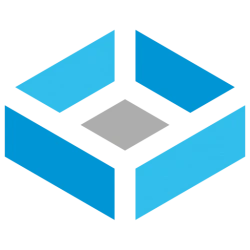Hi all,
I am facing some problems while installing the keycloak port into a FreeBSD jail. I used a 13.1 jail and TrueNAS 13 U4.
I used the following command to install the port:
Afterwards I receive some problems while openjdkl is built (see code below this message).
I also wrote with the maintainer of this port. He wrote to me that it is likely no issue with the port itself but with
the java build in TrueNAS itself, referring to these two threads:
 www.truenas.com
www.truenas.com
Would you agree that this is a problem with the java build in TrueNAS? How can I fix this problem? I read this instruction "Try to set MAKE_JOBS_UNSAFE=yes and rebuild" - but I do not know whether that could help given that the maintainer already told me that there should be no mistake in the keycloak build.
Best regards
matclou
I am facing some problems while installing the keycloak port into a FreeBSD jail. I used a 13.1 jail and TrueNAS 13 U4.
I used the following command to install the port:
Code:
pkg install git git clone https://git.FreeBSD.org/ports.git /usr/ports git -C /usr/ports pull cd /usr/ports/net/keycloak/ && make install clean BATCH=yes
Afterwards I receive some problems while openjdkl is built (see code below this message).
Code:
===> Building for openjdk11-11.0.18+10.1 gmake[2]: Entering directory '/usr/ports/java/openjdk11/work/jdk11u-jdk-11.0.18-10-1' gmake[3]: Entering directory '/usr/ports/java/openjdk11/work/jdk11u-jdk-11.0.18-10-1' gmake[3]: Leaving directory '/usr/ports/java/openjdk11/work/jdk11u-jdk-11.0.18-10-1' gmake[3]: Entering directory '/usr/ports/java/openjdk11/work/jdk11u-jdk-11.0.18-10-1' Building target 'images' in configuration 'bsd-x86_64-normal-server-release' gmake[4]: Entering directory '/usr/ports/java/openjdk11/work/jdk11u-jdk-11.0.18-10-1' gmake[5]: Entering directory '/usr/ports/java/openjdk11/work/jdk11u-jdk-11.0.18-10-1/make' gmake[5]: Entering directory '/usr/ports/java/openjdk11/work/jdk11u-jdk-11.0.18-10-1/make' gmake[5]: Entering directory '/usr/ports/java/openjdk11/work/jdk11u-jdk-11.0.18-10-1/make' gmake[5]: Entering directory '/usr/ports/java/openjdk11/work/jdk11u-jdk-11.0.18-10-1/make' Compiling 8 files for BUILD_TOOLS_LANGTOOLS gmake[5]: Leaving directory '/usr/ports/java/openjdk11/work/jdk11u-jdk-11.0.18-10-1/make' gmake[5]: Entering directory '/usr/ports/java/openjdk11/work/jdk11u-jdk-11.0.18-10-1/make' gmake[5]: Leaving directory '/usr/ports/java/openjdk11/work/jdk11u-jdk-11.0.18-10-1/make' gmake[5]: Leaving directory '/usr/ports/java/openjdk11/work/jdk11u-jdk-11.0.18-10-1/make' gmake[5]: Entering directory '/usr/ports/java/openjdk11/work/jdk11u-jdk-11.0.18-10-1/make' gmake[5]: Entering directory '/usr/ports/java/openjdk11/work/jdk11u-jdk-11.0.18-10-1/make' gmake[5]: Leaving directory '/usr/ports/java/openjdk11/work/jdk11u-jdk-11.0.18-10-1/make' gmake[5]: Leaving directory '/usr/ports/java/openjdk11/work/jdk11u-jdk-11.0.18-10-1/make' gmake[5]: Entering directory '/usr/ports/java/openjdk11/work/jdk11u-jdk-11.0.18-10-1/make' gmake[5]: Leaving directory '/usr/ports/java/openjdk11/work/jdk11u-jdk-11.0.18-10-1/make' gmake[5]: Entering directory '/usr/ports/java/openjdk11/work/jdk11u-jdk-11.0.18-10-1/make' Warning: No SCM configuration present and no .src-rev gmake[5]: Leaving directory '/usr/ports/java/openjdk11/work/jdk11u-jdk-11.0.18-10-1/make' gmake[5]: Leaving directory '/usr/ports/java/openjdk11/work/jdk11u-jdk-11.0.18-10-1/make' gmake[5]: Entering directory '/usr/ports/java/openjdk11/work/jdk11u-jdk-11.0.18-10-1/make/hotspot' gmake[5]: Entering directory '/usr/ports/java/openjdk11/work/jdk11u-jdk-11.0.18-10-1/make' gmake[5]: Leaving directory '/usr/ports/java/openjdk11/work/jdk11u-jdk-11.0.18-10-1/make' Creating hotspot/variant-server/tools/adlc/adlc from 13 file(s) Compiling 2 files for BUILD_JVMTI_TOOLS dtrace: dtrace: dtrace: failed to compile script /usr/ports/java/openjdk11/work/jdk11u-jdk-11.0.18-10-1/build/bsd-x86_64-normal-server-release/hotspot/variant-server/support/dtrace/hotspot_jni.h.d: "/usr/lib/dtrace/ipfw.d", line 1: syntax error near "in_addr_t" failed to compile script /usr/ports/java/openjdk11/work/jdk11u-jdk-11.0.18-10-1/build/bsd-x86_64-normal-server-release/hotspot/variant-server/support/dtrace/hs_private.h.d: "/usr/lib/dtrace/ipfw.d", line 1: syntax error near "in_addr_t" failed to compile script /usr/ports/java/openjdk11/work/jdk11u-jdk-11.0.18-10-1/build/bsd-x86_64-normal-server-release/hotspot/variant-server/support/dtrace/hotspot.h.d: "/usr/lib/dtrace/ipfw.d", line 1: syntax error near "in_addr_t" gmake[5]: *** [gensrc/GensrcDtrace.gmk:51: /usr/ports/java/openjdk11/work/jdk11u-jdk-11.0.18-10-1/build/bsd-x86_64-normal-server-release/hotspot/variant-server/gensrc/dtracefiles/hotspot_jni.h] Error 1 gmake[5]: *** Waiting for unfinished jobs.... gmake[5]: *** [gensrc/GensrcDtrace.gmk:51: /usr/ports/java/openjdk11/work/jdk11u-jdk-11.0.18-10-1/build/bsd-x86_64-normal-server-release/hotspot/variant-server/gensrc/dtracefiles/hotspot.h] Error 1 gmake[5]: *** [gensrc/GensrcDtrace.gmk:51: /usr/ports/java/openjdk11/work/jdk11u-jdk-11.0.18-10-1/build/bsd-x86_64-normal-server-release/hotspot/variant-server/gensrc/dtracefiles/hs_private.h] Error 1 gmake[5]: Leaving directory '/usr/ports/java/openjdk11/work/jdk11u-jdk-11.0.18-10-1/make/hotspot' gmake[4]: *** [make/Main.gmk:265: hotspot-server-gensrc] Error 2 gmake[4]: *** Waiting for unfinished jobs.... gmake[5]: Leaving directory '/usr/ports/java/openjdk11/work/jdk11u-jdk-11.0.18-10-1/make' gmake[4]: Leaving directory '/usr/ports/java/openjdk11/work/jdk11u-jdk-11.0.18-10-1' ERROR: Build failed for target 'images' in configuration 'bsd-x86_64-normal-server-release' (exit code 2) gmake[4]: Entering directory '/usr/ports/java/openjdk11/work/jdk11u-jdk-11.0.18-10-1' === Output from failing command(s) repeated here === * For target hotspot_variant-server_gensrc_dtracefiles_hotspot.h: dtrace: failed to compile script /usr/ports/java/openjdk11/work/jdk11u-jdk-11.0.18-10-1/build/bsd-x86_64-normal-server-release/hotspot/variant-server/support/dtrace/hotspot.h.d: "/usr/lib/dtrace/ipfw.d", line 1: syntax error near "in_addr_t" * For target hotspot_variant-server_gensrc_dtracefiles_hotspot_jni.h: dtrace: failed to compile script /usr/ports/java/openjdk11/work/jdk11u-jdk-11.0.18-10-1/build/bsd-x86_64-normal-server-release/hotspot/variant-server/support/dtrace/hotspot_jni.h.d: "/usr/lib/dtrace/ipfw.d", line 1: syntax error near "in_addr_t" * For target hotspot_variant-server_gensrc_dtracefiles_hs_private.h: dtrace: failed to compile script /usr/ports/java/openjdk11/work/jdk11u-jdk-11.0.18-10-1/build/bsd-x86_64-normal-server-release/hotspot/variant-server/support/dtrace/hs_private.h.d: "/usr/lib/dtrace/ipfw.d", line 1: syntax error near "in_addr_t" * All command lines available in /usr/ports/java/openjdk11/work/jdk11u-jdk-11.0.18-10-1/build/bsd-x86_64-normal-server-release/make-support/failure-logs. === End of repeated output === No indication of failed target found. Hint: Try searching the build log for '] Error'. Hint: See doc/building.html#troubleshooting for assistance. gmake[4]: Leaving directory '/usr/ports/java/openjdk11/work/jdk11u-jdk-11.0.18-10-1' gmake[3]: *** [/usr/ports/java/openjdk11/work/jdk11u-jdk-11.0.18-10-1/make/Init.gmk:305: main] Error 2 gmake[3]: Leaving directory '/usr/ports/java/openjdk11/work/jdk11u-jdk-11.0.18-10-1' gmake[2]: *** [/usr/ports/java/openjdk11/work/jdk11u-jdk-11.0.18-10-1/make/Init.gmk:186: images] Error 2 gmake[2]: Leaving directory '/usr/ports/java/openjdk11/work/jdk11u-jdk-11.0.18-10-1' ===> Compilation failed unexpectedly. Try to set MAKE_JOBS_UNSAFE=yes and rebuild before reporting the failure to the maintainer. *** Error code 1 Stop. make[1]: stopped in /usr/ports/java/openjdk11 *** Error code 1 Stop. make: stopped in /usr/ports/net/keycloak
I also wrote with the maintainer of this port. He wrote to me that it is likely no issue with the port itself but with
the java build in TrueNAS itself, referring to these two threads:
Problems with DTRACE in poudriere jail
===> Building for tcl86-8.6.12 /usr/sbin/dtrace -h -o tclDTrace.h -s /wrkdirs/usr/ports/lang/tcl86/work/tcl8.6.12/generic/tclDTrace.d dtrace: failed to compile script /wrkdirs/usr/ports/lang/tcl86/work/tcl8.6.12/generic/tclDTrace.d: "/usr/lib/dtrace/ipfw.d", line 1: syntax error near...
Would you agree that this is a problem with the java build in TrueNAS? How can I fix this problem? I read this instruction "Try to set MAKE_JOBS_UNSAFE=yes and rebuild" - but I do not know whether that could help given that the maintainer already told me that there should be no mistake in the keycloak build.
Best regards
matclou
